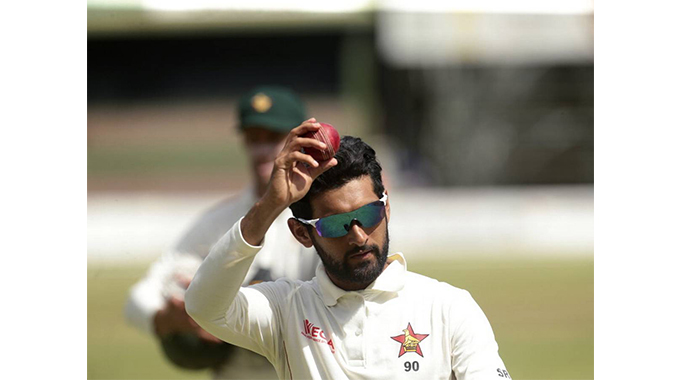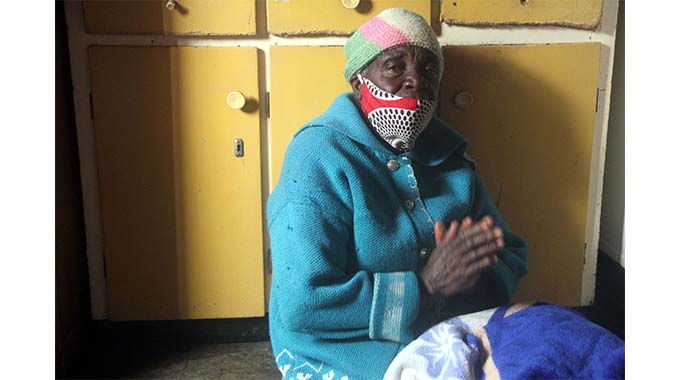Covid-19 worsens women in politics’ challenges

Thandeka Moyo-Ndlovu
MOBILE internet and data usage went up by about 43 percent in Zimbabwe due to the outbreak of the deadly Covid-19 pandemic last year.
The pandemic also pushed up internet usage worldwide by up to 73 percent as people were forced to migrate to online platforms for school, business, entertainment and pleasure to curb the spread of the virus.
While the increase in internet and data usage can be celebrated as a positive development, the ‘new normal’ exposed a massive resource constraint among thousands who have no access to gadgets, network and money to buy internet bundles.
The most affected are the rural folk who found themselves cut off from economic, political and social activities because they have no means to be online.
The Covid-19 induced lockdowns which among others banned gatherings and travel, have also worsened resource challenges faced by women in politics especially those in rural areas.
Job cuts, closure of small to medium companies and the informal sector, left many without access to basics like food and medication.
Now that everything has moved online, only a handful of women are able to keep afloat with expectations from their constituencies as they too cannot afford internet charges.
Despite socio-economic challenges brought about by Covid-19, service providers have been hiking prices and as such data and internet bundles are now out of reach for thousands of people.
In September 2020 data bundle tariffs were reviewed upwards and Econet subscribers are expected to pay $13 for a daily 20-megabyte (MB) data bundle, up from $8, while 100MB of monthly data bundles have been adjusted from $42 to $67.
Econet’s monthly 8G private Wi-Fi bundle was reviewed to $1 300 from $960.
NetOne proceeded to hike prices by almost 200 percent meaning its subscribers are now paying $16 for a 20MB daily bundle and $100 for a weekly 150MB bundle.
Telecel is charging $15 for daily 50MB bundles and $100 for a monthly 220MB bundle.
Women in politics have described the online migration as a stumbling block since many already had financial challenges prior to the pandemic.
Nkayi North legislator Ms Stars Mathe said more than half of people in Matabeleland North have no access to networks, which means they have been missing out on the online general developmental programmes.
She said that she has spent the greater part of her 54 years in Nkayi where she comes from and has also faced a number of resource challenges as a politician.
“The journey hasn’t been easy because it is not easy leading if you are a woman who does not have any economic means to finance a political career for starters. It is hard to get resources as empowerment has always been biased towards men from the olden days and with Covid-19 the situation has worsened,” she said.
Ms Mathe said many women do not have basics to sustain themselves and families hence political participation becomes a mountain to climb.
Women in rural settings do not even own cellphones that enable them to use the internet as their measly resources are often used for food and clothing says Ms Mathe.
She said many parents in her area were failing to help their children with school work since the outbreak of Covid-19 because they have no access to information and communication technologies.
Ms Mathe said women MPs were finding it difficult to even raise enough resources to interact with people in their constituencies or follow Parliamentary proceedings during this pandemic.
She said only a handful of women have mines or farms to assist them raise resources to finance such activities as campaigns during elections.
“Sometimes asking for handouts from men exposes us to a danger of being labelled as desperate because men think women who want their money are interested in intimate relationships as well. Going to other women is hard as well as many of us still struggle to support each other,” said Ms Mathe.

Ms Stars Mathe
Gender activist Mrs Sibusisiwe Bhebhe said apart from challenges brought about by the outbreak of Covid-19, women in politics have been victims of external and internal forces which affect their participation.
“For starters, a woman must have vast sources of income to travel and campaign in order to be visible in her constituency. It is only those politicians that have big cars who are deemed capable and useful as we live in materialistic communities,” she said.
“They expect the MP to give them lifts and bring donations whenever they can which means even prospective females must secure resources to go around campaigning even before they are elected. Many women do not have those resources hence it is a struggle to make it,” she added.
Mrs Bhebhe said Covid-19 has left many women with no means of a livelihood hence data and internet usage becomes a luxury.
She said Parliamentarians are elected to make laws but their voters still expect them to run around and bring back donations.
“A lot of women may be vocal in Parliament but because they do have resources to run around, they may be dismissed as useless politicians. Women are also raised to think men are the only capable leaders which explains why some do not have confidence in themselves and their ability to bring about the much-needed change,” said Mrs Bhebhe.
Women’s Action Group executive director, Mrs Edna Masiyiwa said the pandemic has affected most of the decision-making positions.
She noted that the situation is worse for unemployed women who relied on the informal sector.
“For women in politics the issue of data and online meetings has been a challenge as one needs to be well versed with technology so that you can navigate some of these platforms and have online meetings and participate fully. The issue of capacity to use the gadgets is a challenge as well,” said Mrs Masiyiwa.
She said the pandemic could have worsened resource challenges for many women especially those in politics.
“Network problems pose challenges when meetings are conducted online. Before we go to issues to do with data, we need to address the challenge of access to resources which is the reason why many women are not actively involved in politics,” she said.
Contacted for comment, Information and Communication Technologies, Postal and Courier Services Deputy Minister Mr Dingumuzi Phuti said the Covid-19 outbreak forced the country to move faster in terms of providing ICT services.
“Government has been doing its best to ensure that everyone is connected and we are already working with different players to ensure members of the public have access to network. This new normal is challenging us as Ministry to look into gender dynamics and ensure women have access to ICTs so that they participate in all economic and political activities in the country,” he said.
Mr Phuti said he was aware that data charges are hindering many especially women from actively participating in politics.
“The truth is women are so organised and it is pity that they have been lagging behind in terms of access to ICTs but it is something that I intend to work on.
“We are also passionate about empowering young women whom we know are involved in village banking and other powerful programmes whose growth will be enabled by access to ICTs,” he said. — @thamamoe











Comments